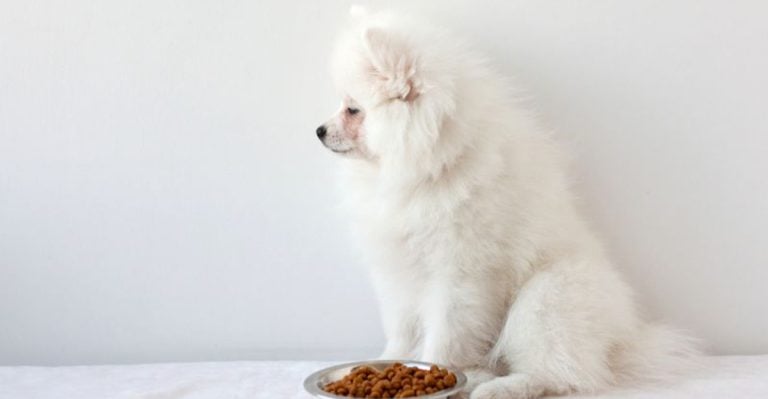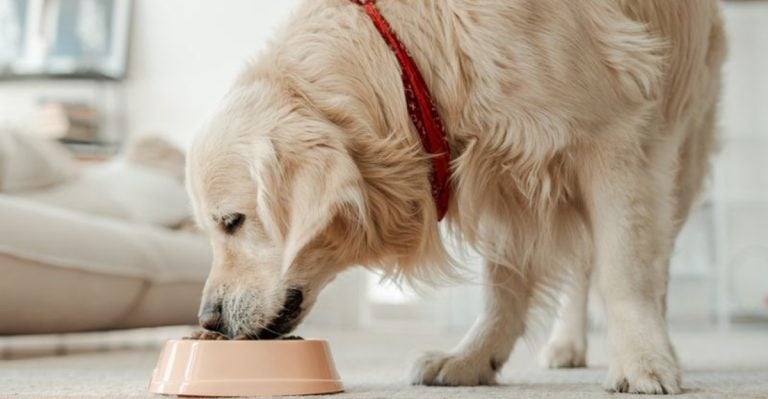Is Your Dog Sleeping Too Much? Here’s What Science Says
If you’ve ever looked over at your dog and thought, “You’re sleeping… again?”, you’re definitely not alone.
Whether they’re curled up in their bed, sprawled on the couch, or sneakily snoozing in your laundry pile, dogs have a talent for turning every surface into nap territory.
And while it might seem like they’re just being adorably lazy, there’s actually a lot more going on behind all that shut-eye. Most adult dogs sleep anywhere from 12 to 14 hours a day—sometimes even more.
Puppies and senior dogs? They can clock in 18 to 20 hours like it’s a full-time job with overtime. At first glance, that might feel excessive, especially if you’re used to comparing their habits to your own.
But here’s the thing: dogs aren’t little humans in fur coats. Their biology, instincts, and daily rhythms are wired differently. And science tells us that all that sleeping isn’t just normal—it’s necessary for their health, development, and overall happiness.
So before you worry that your four-legged friend is hibernating through life, take a moment to understand why they nap so much.
There are real, research-backed reasons behind your pup’s impressive sleep schedule. From brain development to breed-specific tendencies, their napping is more purposeful than you might think.
In this article, we’re digging into 16 science-backed facts that explain your dog’s deep love affair with sleep.
Whether you’ve got a bouncy beagle or a snoozy Saint Bernard, this guide will help you understand what’s normal, what’s not, and why letting sleeping dogs lie is often the best thing you can do.
Grab a cup of coffee—your dog’s already got their blanket. Let’s find out what’s really happening while they snooze the day away.
1. Dogs Have Different Sleep Cycles Than Humans
Unlike humans who have longer REM cycles, dogs experience shorter sleep cycles and reach REM more frequently, requiring more total sleep to feel rested. This leads to frequent naps throughout the day.
Interestingly, dogs can enter REM sleep within minutes, a stark contrast to humans. Their dreams might involve chasing squirrels or playing fetch.
This rapid cycle ensures they’re well-rested despite shorter deep sleep periods. Did you know? Dogs spend 10-12% of their sleep time in REM, compared to 20-25% in humans. This difference means they need more time asleep overall.
2. Puppies Need Sleep to Grow
Young dogs can sleep 18–20 hours a day because their brains and bodies are developing at lightning speed—sleep helps solidify memory and promote growth.
It’s during these restful periods that puppies absorb all the learning from their waking hours.
Each nap contributes to their cognitive and physical development. Consider how essential rest is for learning a new trick or adjusting to a new environment. Sleep is their secret weapon for mastering their world.
Not only does it aid growth, but it also builds resilience and adaptability.
Puppies are like sponges, absorbing everything, and sleep is the wringing-out process that helps them grow strong.
3. Older Dogs Tire More Easily
Senior dogs often slow down and need more rest due to joint issues, slower metabolism, and reduced stamina, making longer naps perfectly normal. As they age, activities once done with ease now require more effort.
Sleep becomes a cherished time for recovery and relaxation. Just as humans slow with age, older dogs find solace in restful slumber. It’s a time to soothe aches and reflect on a life well-lived.
Their gentle breathing and soft snores are reminders of a life filled with playful days and loyal companionship.
Longer sleep sessions are nature’s way of giving them comfort and peace in their golden years.
4. Breed Makes a Big Difference
Large breeds like Saint Bernards or Newfoundlands tend to sleep more than smaller, high-energy breeds like Jack Russells or Border Collies. It’s a matter of size and energy conservation. Big dogs have a laid-back demeanor that suits longer naps.
Meanwhile, smaller breeds with boundless energy often need more stimulation and less sleep.
This variance in sleep patterns is not just intriguing; it’s essential for their well-being. Each breed has its rhythm, and understanding this helps in catering to their specific needs.
The contrast between breeds is as vast as their sizes, offering a glimpse into the diverse world of canine slumber.
5. Dogs Sleep to Conserve Energy
Evolutionarily, dogs sleep more because conserving energy for hunting or guarding was critical—this trait persists even in couch-loving canines. In the wild, sleep was a survival tool, ensuring they had the energy for sudden bursts of activity.
Modern dogs may not need to hunt, but the instinct remains. They still conserve energy for those enthusiastic play sessions or alert barks at the mailman. This ancient behavior is a window into their survival instincts.
It’s fascinating to see how these primal habits have adapted to our living rooms, creating a balance between their wild ancestry and domestic life.
6. Mental Boredom Leads to Napping
If your dog doesn’t have enough stimulation or interactive play, sleep becomes a go-to activity to pass the time. Boredom can make dogs lethargic, opting for rest over play.
Without engaging activities, they seek solace in sleep, which becomes a coping mechanism.
This behavior is not just about physical exhaustion but mental fatigue. A lack of mental stimulation can lead to an increase in sleep as a way to fill the void of inactivity.
Providing variety and engagement in their daily routine can help balance their rest and play, ensuring they enjoy a fulfilling, active life.
7. Sleep Patterns Reflect Human Routines
Dogs often sync their rest with your lifestyle. If you’re gone all day or inactive, your dog will likely nap to match your rhythm. It’s a beautiful reflection of their companionship and adaptability.
Dogs are keen observers of human behavior, and they adjust their patterns accordingly.
Whether you’re a night owl or an early bird, your dog’s sleep might mirror your habits. This synchronization is more than mere habit; it’s a testament to the bond between humans and their canine friends.
Their sleep becomes a quiet partnership, where they find comfort and assurance in aligning with their family’s rhythm.
8. Weather Affects Sleep Quantity
Dogs often sleep more during cold, rainy, or overcast weather because there’s less light and fewer stimuli—just like us during a lazy Sunday.
The soothing sound of rain and a darker sky invite longer naps. Imagine a cozy afternoon, wrapped in warmth as raindrops dance against the windowpane. Dogs, too, feel this pull towards comfort and rest.
Weather’s impact on sleep is a shared experience with our pets, reflecting our mutual need for downtime.
Those lazy days become moments of shared relaxation, where the world slows, and rest takes precedence. It’s a natural response to nature’s gentle cues.
9. Sleep Supports Immune Health
Scientific studies show that rest helps your dog’s immune system fight off disease—poor sleep may increase susceptibility to illness. Just as humans require rest for healing, dogs need quality sleep for optimal health.
Their bodies use this time to repair and rejuvenate, strengthening defenses against sickness.
It’s during these restful hours that their immune system recharges, ready to tackle any challenges. The relationship between sleep and health is crucial for their well-being.
Ensuring your dog gets enough rest is akin to giving them a daily dose of preventive medicine, keeping them vibrant and energetic, ready to face new adventures.
10. Highly Active Dogs Need Recovery Time
If your pup spends a lot of time running, herding, or training, increased sleep is just a part of post-activity recovery and muscle repair.
Their boisterous energy demands significant downtime. Consider how you feel after an intense workout; dogs need similar recovery. After a day of chasing balls or practicing agility, sleep becomes essential for muscle repair and growth.
This rest phase is vital for maintaining peak physical condition. It’s not just about physical restoration but mental relaxation, preparing them for the next bout of excitement.
Their snooze is a well-deserved break, ensuring they are ready for the adventures ahead.
11. Certain Medications Cause Drowsiness
Medications like antihistamines, anti-anxiety drugs, or pain relievers often come with the side effect of sedation or increased sleep. This drowsiness is a common response to certain treatments, mirroring the effects seen in humans.
These medications can alter their usual energy levels, leading to more frequent naps. Understanding this side effect can help manage expectations and ensure they receive the care they need.
While medications aid in recovery and comfort, they also remind us of the importance of balance and observation.
Monitoring your dog’s sleep alongside their medication can offer insights into their health and recovery process.
12. Overeating Can Cause Lethargy
Dogs who consume too many calories—or rich, heavy meals—may sleep more as their bodies struggle to process and digest excess food. It’s a feeling many can relate to after a big holiday feast.
Their digestive system works overtime, requiring more rest to regain balance.
This post-meal lethargy is a natural response to overindulgence. Keeping an eye on portion sizes and dietary habits can help maintain their energy and health. Just like humans, moderation is key.
Providing balanced, measured meals supports their vitality, reducing the likelihood of sluggishness and promoting a more active, engaged lifestyle.
13. Underlying Health Issues Can Increase Sleep
Conditions like hypothyroidism, diabetes, or heart disease can drain energy, making frequent napping a symptom worth monitoring. These health issues can quietly impact your dog’s vitality, and increased sleep becomes a signal for deeper concerns.
Regular vet visits and attentive care are essential in identifying and addressing such conditions. Sleep can act as an early warning system, guiding you to seek medical advice.
Understanding these signs fosters proactive management, ensuring your dog receives the necessary treatment and support.
Their well-being is a priority, and recognizing the subtle language of sleep helps in maintaining their health.
14. Dogs Use Sleep to Emotionally Reset
After stressful events like a vet visit or house guests, sleep allows dogs to mentally reset, lowering cortisol levels and reducing anxiety. This downtime is therapeutic, providing a safe space to recover emotionally.
Consider it a mental detox, where sleep becomes a refuge from overwhelming experiences.
Their dreams might offer comfort, helping process recent events. The gentle act of sleeping aids in emotional balance, easing tensions and promoting a calmer demeanor.
Creating a peaceful environment for rest can enhance this emotional healing, supporting their mental health and resilience. It’s a quiet testament to the restorative power of sleep.
15. They’re Catching Up on Missed Rest
Dogs don’t always get quality sleep in busy environments. They often “make up” for fragmented or interrupted sleep when things are calm.
This catch-up sleep is essential for their overall well-being, ensuring they remain alert and active.
Imagine the joy of a quiet night after a bustling day; dogs, too, relish these moments of uninterrupted rest. It’s during these times that they recharge fully, ready to tackle new adventures.
Ensuring a comfortable, peaceful sleeping area can help them recuperate effectively, offering a sanctuary where they can restore energy levels. This balance between activity and rest is key to their happiness.
16. It’s Simply Normal Dog Behavior
Most adult dogs sleep 12–14 hours a day—it’s not laziness, it’s biology. They just aren’t wired to be active all day like humans. This natural tendency is part of what makes them well-adjusted companions.
Their sleep reflects a balance in their lifestyle, providing the energy needed for play and exploration. Understanding this behavior can help manage expectations and foster a healthier relationship with your pet.
It’s a gentle reminder that their world is governed by different rhythms. Embracing their sleep habits allows for a harmonious coexistence, where both humans and dogs thrive in their natural routines.






















